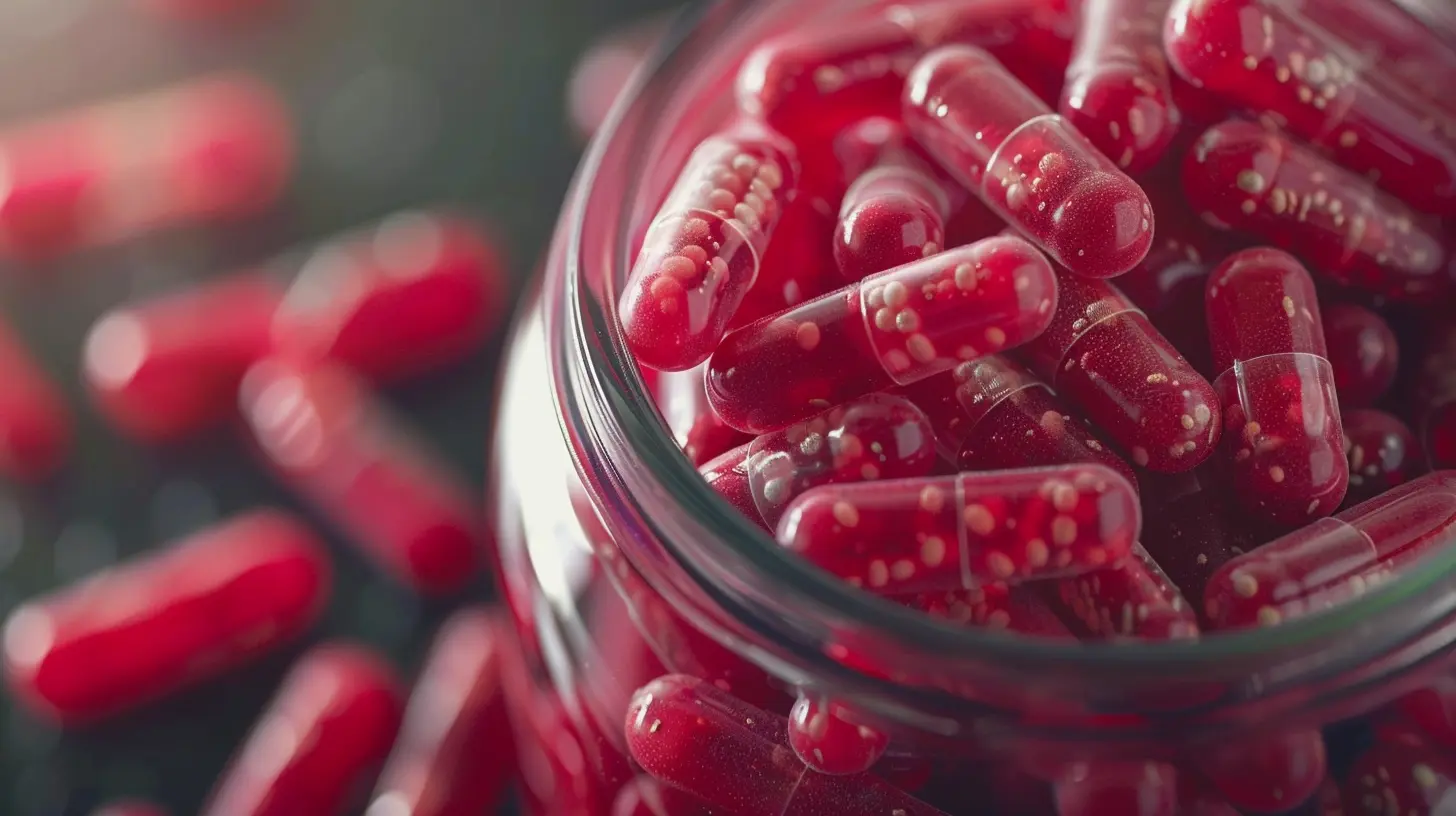13 February 2025
Have you ever heard someone say, "Trust your gut"? Well, it turns out, this age-old saying might be more literal than figurative. Your gut health doesn’t just affect your digestion—it may also be tied to how you feel mentally. Surprising, right? Among the growing buzz around gut health and mental well-being, probiotics have taken center stage. But can probiotics really reduce anxiety? Let’s break it down and take a closer look at the evidence.
What Are Probiotics, Anyway?
Before we get into the nitty-gritty of anxiety, let’s start with the basics. Probiotics are live microorganisms—think of them as "good bacteria"—that naturally live in your gut. They’re found in certain foods like yogurt, sauerkraut, and kefir, as well as in supplements.These little powerhouses do more than just help with digestion. They’re like tiny superheroes working to balance the bacteria in your gut microbiome, which plays a huge role in keeping your body running smoothly. But the big question is: can these gut-friendly bacteria also influence what's going on in your head?
The Gut-Brain Connection: How Are They Linked?
Here’s where things get super interesting. Scientists have discovered something called the gut-brain axis, which is like a two-way communication highway between your gut and your brain. Imagine your gut and brain texting each other all day long, exchanging messages through nerves, hormones, and biochemicals.A major player in this conversation is the vagus nerve, which acts as the main messenger system. So, when your gut is out of whack—like having an imbalance of good and bad bacteria—it can send “distress signals” to your brain. And guess what? This might trigger symptoms like anxiety or stress.
And it’s not just about communication. Your gut produces a significant amount of serotonin, the so-called “feel good” hormone that helps regulate mood. In fact, about 90% of serotonin is made in your gut, not your brain. Mind blown, right?
Can Probiotics Really Help with Anxiety?
Okay, let’s get to the heart of the matter. Can probiotics actually reduce anxiety, or is it just wishful thinking?What Does the Science Say?
Research exploring probiotics and anxiety is still in its early stages, but there’s some promising evidence. A handful of studies—mainly on animals but increasingly on humans—suggest that certain probiotic strains may help reduce anxiety symptoms. Let’s break down a few key findings.1. Animal Studies:
- In one study, mice that were fed a specific strain of probiotics (Lactobacillus rhamnosus, if you’re curious) showed reduced anxiety-like behaviors. Even crazier? The effect seemed to vanish when the vagus nerve was blocked, reinforcing how critical the gut-brain connection is.
2. Human Studies:
- Human research, though limited, is showing some good vibes too. For example, one small study found that people who took a multi-strain probiotic for four weeks reported feeling less stressed and anxious.
- Another study involving people with depression reported that probiotics improved not just gastrointestinal symptoms but also mood. Since anxiety and depression often travel hand in hand, this could be a game-changer.
Not All Probiotics Are Created Equal
Here’s an important caveat: Not all probiotics are the same. Think of them like different breeds of pets—while a Labrador and a Siamese cat are both animals, they serve entirely different roles. Specific strains of probiotics seem to have specific effects on the gut and brain. For anxiety, strains like Lactobacillus rhamnosus, Bifidobacterium longum, and Lactobacillus helveticus show the most promise so far.
How Do Probiotics Reduce Anxiety?
You might be wondering, "Okay, but how do probiotics actually work their magic?" Great question! While researchers are still unraveling the exact mechanisms, here are a few possible ways they could help:1. Lowering Inflammation: Chronic inflammation in the body has been linked to mood disorders, including anxiety. Probiotics may help by reducing gut inflammation, which could lead to calmer moods.
2. Boosting Serotonin Production: As we mentioned earlier, your gut is a serotonin-making powerhouse. Probiotics might enhance this production, giving your brain a little extra "happy juice."
3. Balancing Cortisol Levels: Cortisol, your body’s stress hormone, can go haywire during anxiety. Some studies suggest probiotics can help regulate cortisol levels, keeping them in check.
4. Improving the Microbiome: By promoting a healthier gut microbiome, probiotics may foster a more balanced gut-brain connection, which could ease anxiety symptoms.
Are Probiotics the Magic Cure for Anxiety?
Now, before you start stocking up on probiotics like they’re the new holy grail, let’s get real for a second. Probiotics aren’t a magic pill that will erase anxiety overnight. They’re more like one piece of the puzzle.Anxiety is a complex condition influenced by a mix of factors—your genetics, environment, lifestyle, and even your past experiences all play a role. While probiotics might help improve your mental health, they’re most effective when combined with other efforts, like eating a balanced diet, getting regular exercise, practicing mindfulness, and seeking professional help when needed.
Choosing the Right Probiotic for Anxiety
If probiotics seem worth a shot for you, how do you pick the right one? Here are some quick tips:- Check the Strains: Remember, not all probiotics are created equal. Look for strains like Lactobacillus rhamnosus, Bifidobacterium longum, or Lactobacillus helveticus.
- Go for High Quality: Choose a reputable brand with third-party testing to ensure you’re getting live, active cultures.
- Be Patient: Probiotics aren’t an instant fix. It can take weeks (or even months) to notice any changes. Stick with it!
And hey, don’t forget to include probiotic-rich foods in your diet too! Yogurt, kimchi, miso, and kombucha are all great options.
What About Prebiotics?
Speaking of food, it’s worth mentioning prebiotics, which are like the “fertilizer” for your probiotics. Prebiotics feed the good bacteria in your gut, helping them thrive. Foods like bananas, garlic, onions, and whole grains are packed with prebiotics, so make sure your diet includes a mix of both.Final Thoughts: Should You Try Probiotics for Anxiety?
So, can probiotics reduce anxiety? The short answer: Maybe. The long answer: The science is promising but still emerging, and results can vary depending on the person. If you’re curious about trying probiotics, it’s worth chatting with a healthcare professional to see if they’re right for you.At the very least, prioritizing your gut health is never a bad idea. After all, a healthy gut contributes to overall well-being, and who wouldn’t want better digestion, stronger immunity, and potentially a calmer mind? Even if probiotics aren’t a silver bullet, they’re definitely an intriguing part of the mental health conversation.
Here’s to better gut health—and hopefully less anxiety—one probiotic at a time!









Valen Bailey
Exploring the connection between probiotics and anxiety opens exciting new avenues for mental health! While the research is still unfolding, every step towards understanding how our gut impacts our mind is a step towards a healthier, happier life. Keep striving for wellness!
March 31, 2025 at 4:21 PM